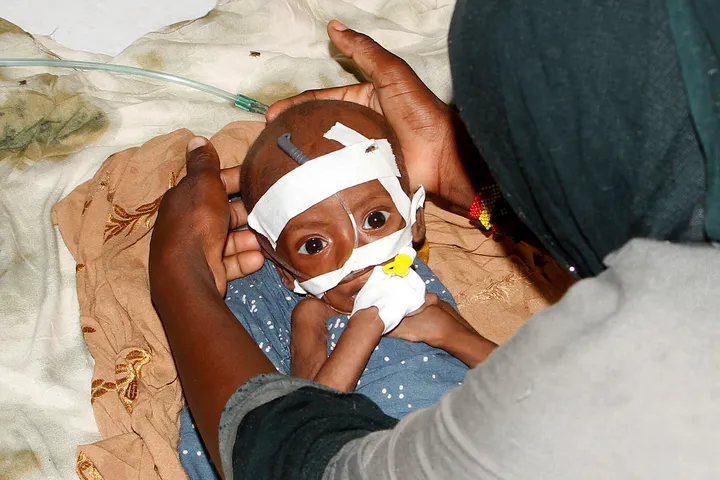The death toll from floods and mudslides after rainstorms struck the South African port city of Durban and surrounding areas in KwaZulu-Natal province has climbed to 59, authorities said.
The country's meteorologists on Tuesday predicted more "extreme" rains on the way accompanied by "widespread flooding".
"Many people lost their lives with Ethekwini (Durban metro) alone reporting 45 so far," while in the iLembe district "more than 14 are reported to have tragically lost their lives," the provincial government said in a statement.
Days of pounding rain flooded several areas, tore houses apart and ravaged infrastructure across the southeastern city, while landslips caused train services across KwaZulu-Natal province to be suspended.
The rains have flooded city highways, torn apart bridges, submerged cars and collapsed houses. A fuel tank was floating in the sea after being tossed off the road.
Several shipping containers that were stacked high atop of each other, fell like dominoes and lay strewn on a yard, while some spilled over into the main road in the city, one of southern Africa's largest regional gateways to the sea.
"At around 3 am (0100 GMT), I felt the truck shaking and I thought maybe someone bumped it and when I tried to open the curtain I saw the water level... was very high," said a truck driver Mthunzi Ngcobo.
The disaster management department in KwaZulu-Natal province, of which Durban is the largest city, urged people to stay at home and ordered those residing in low-lying areas to move to higher ground.
More than 6,000 homes damaged
More than 2,000 houses and 4,000 "informal" homes, or shacks, have been damaged, provincial premier Sihle Zikalala, told journalists.
Rescue operations, aided by the military, are underway to evacuate people trapped in affected areas, the provincial Department of Cooperative Governance said.
Those trapped include teachers and students at a Durban secondary school, it said.
Durban mayor Mxolisi Kaunda earlier told reporters that power stations had been flooded and water supplies disrupted –– and that even graveyards had not been spared the devastation.
One picture posted on Twitter by an anti-theft vehicle-tracking agency showed what looked like a human skull that had been washed to the surface of a cemetery.
The city had only just recovered from deadly riots last July in which shopping malls were looted and warehouses set on fire, in South Africa's worst unrest since the end of apartheid.
A local humanitarian agency, Gift of the Givers, said in a statement: "The need of the hour is huge."
The country's rail service PRASA said landslips and rubble on the tracks had forced it to suspend all train services in the province.
"It's an absolute nightmare. Plenty of mudslides, people (dying)," Garrith Jamieson, director of Durban-based ALS Paramedics Medical Services, told the AFP news agency as he predicted "more fatalities".
READ MORE: Hundreds left homeless as floods sweep eastern South Africa
Climate crisis
Southern parts of the continent's most industrialised country are bearing the brunt of the climate crisis –– suffering recurrent and worsening torrential rains and flooding.
Floods killed around 70 people in April 2019.
"We know it's climate change getting worse, it's moved from 2017 with extreme storms to supposedly having record floods in 2019, and now 2022 clearly exceeding that," University of Johannesburg development studies professor Mary Galvin said.
"Droughts and floods will become more frequent and more intense and that's what we are seeing," she said, frustrated at government's lack of preparedness.
"It's not surprising, it's absolutely devastating but equally devastating is the fact that we haven't done anything to get ready for it," she lamented.
The South African Weather Service admitted in a statement that "the exceptionally heavy rainfall overnight (on Monday) and (on Tuesday) morning exceeded even the expectations of the southern African meteorological community at large".
READ MORE: Climate change and global security: What’s at stake?























